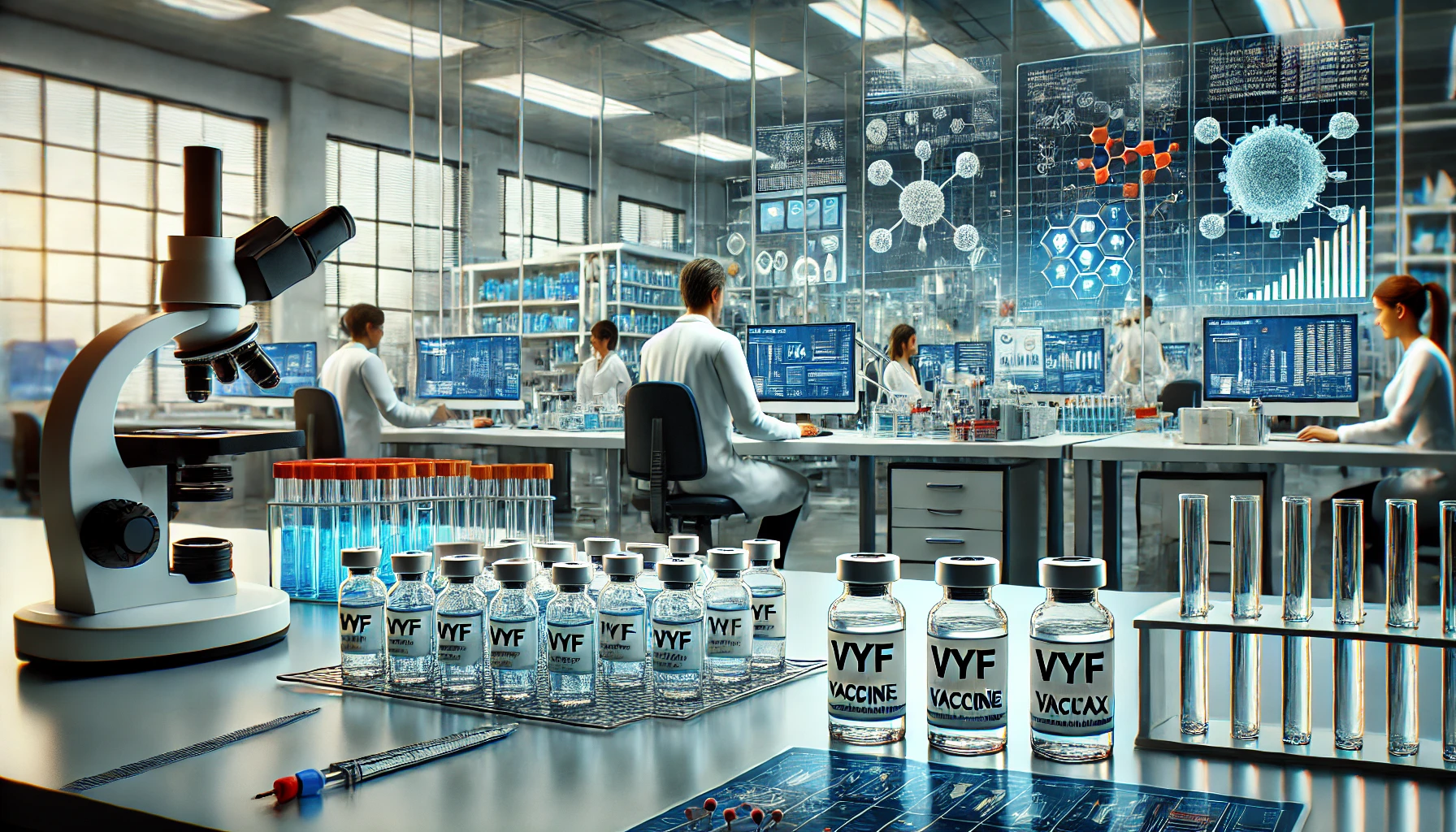Next-Generation Yellow Fever Vaccine Shows Promise in Combating Global Vaccine Shortages
A phase I trial found that the next-generation yellow fever vaccine (vYF) triggers immune responses and offers safety similar to the current YF-VAX, suggesting it could help address global vaccine shortages. Future trials will assess its broader efficacy and safety.

In a recent phase I clinical trial, researchers from Sanofi and the Walter Reed Army Institute of Research explored the potential of a next-generation yellow fever vaccine (vYF), comparing it to the established YF-VAX. Yellow fever is a mosquito-borne viral hemorrhagic disease that remains endemic in tropical and subtropical regions, especially in sub-Saharan Africa and South America. Although vaccination is currently the most effective strategy for preventing yellow fever, the disease continues to pose a significant public health challenge due to the increasing frequency of outbreaks and the consequent depletion of vaccine stockpiles. These shortages, exacerbated by limitations in traditional vaccine production methods, have created an urgent need for new vaccines like vYF, which is produced in serum-free media, unlike the conventional YF-VAX.
Promising Immune Responses from New Vaccine
The trial involved healthy adults aged 18 to 60 who were randomly assigned to receive one of three doses of the new vYF vaccine or the standard YF-VAX. The study aimed to evaluate the immune responses generated by the new vaccine, comparing its ability to trigger both innate and adaptive immune reactions against yellow fever. Participants were followed for 180 days after receiving a single dose, during which blood samples were collected at various intervals to measure cytokine levels, memory B cell responses, and gene expression changes related to the immune response.
Results from the trial were promising, indicating that the new vYF vaccine performed similarly to YF-VAX in stimulating the immune system. Both vaccines elicited strong immune responses, with no significant differences between them in terms of the cytokines and chemokines produced. Cytokines, particularly those involved in antiviral responses, play a crucial role in initiating and regulating immune reactions. After vaccination, there was no substantial increase in the levels of most cytokines and chemokines tested, except for a small rise in IP-10 (CXCL10), a protein involved in immune cell signaling and trafficking. This increase in IP-10 was observed in both the vYF and YF-VAX groups, but it was not accompanied by a rise in other inflammatory markers, suggesting that both vaccines triggered similar inflammatory profiles.
Gene Expression Supports Vaccine Equivalence
Gene expression analyses further supported the equivalence of the two vaccines. The study focused on the expression of genes known to be involved in immune responses to yellow fever vaccines, particularly those that regulate antiviral mechanisms, such as interferon signaling and viral recognition by immune cells. These genes exhibited similar expression patterns in both the vYF and YF-VAX groups, peaking at seven and fourteen days post-vaccination. This peak corresponds to the timing of the immune system's activation, with innate immune responses, including antiviral defenses, occurring earlier, and adaptive responses, involving memory B cells and antibodies, following shortly after. By the 28th day, both vaccines had successfully stimulated increases in yellow fever-specific IgG and IgM antibodies, key components of long-term immunity. Memory B cells, which are responsible for producing these antibodies in response to future exposures to the virus, were also detected in comparable frequencies between the two vaccine groups. Notably, these immune responses persisted throughout the six-month follow-up period, indicating that the new vYF vaccine could provide lasting protection against yellow fever similar to that conferred by YF-VAX.
Favorable Safety Profile of the Next-Gen Vaccine
The safety profile of the new vaccine was another important focus of the trial, given that yellow fever vaccines are known for their ability to induce robust immune responses but can occasionally cause adverse effects. In this study, no serious adverse events were reported in any of the participants, and the safety profiles of vYF and YF-VAX were broadly similar. Although mild injection site reactions and systemic symptoms such as fever or fatigue were observed, they were less frequent in participants who received vYF compared to those who received YF-VAX. This observation suggests that the next-generation vaccine may offer a safer alternative to current options without compromising its effectiveness.
Future Potential for Addressing Vaccine Shortages
The researchers concluded that the new vYF vaccine is a promising candidate for further clinical development. Its ability to induce immune responses comparable to those triggered by YF-VAX, coupled with its favorable safety profile, suggests that it could be a valuable tool in addressing the global demand for yellow fever vaccines. As the world continues to face vaccine shortages and the risk of yellow fever outbreaks, the development of alternative vaccines like vYF could be critical in preventing future public health crises.
Next Steps in Vaccine Development
The findings from this phase I trial provide a strong foundation for advancing vYF into larger phase II and III studies, which will involve more diverse populations and assess the vaccine's efficacy and safety on a broader scale. These future trials will be essential in determining whether vYF can fulfill its potential as a next-generation solution to yellow fever prevention, especially in regions where the disease remains a persistent threat.










